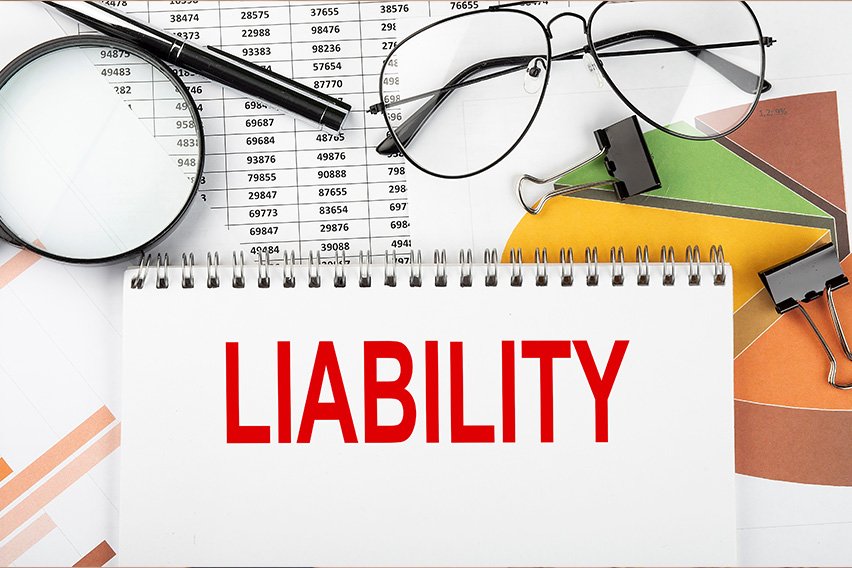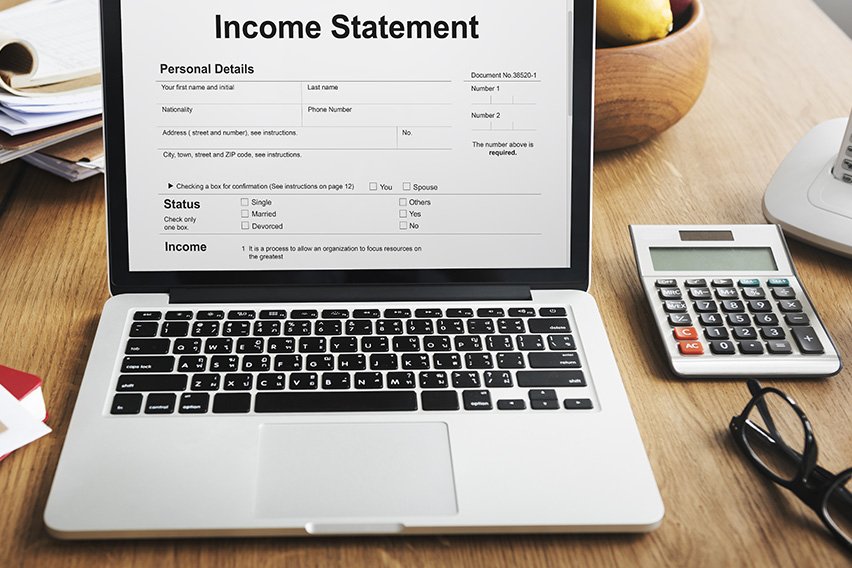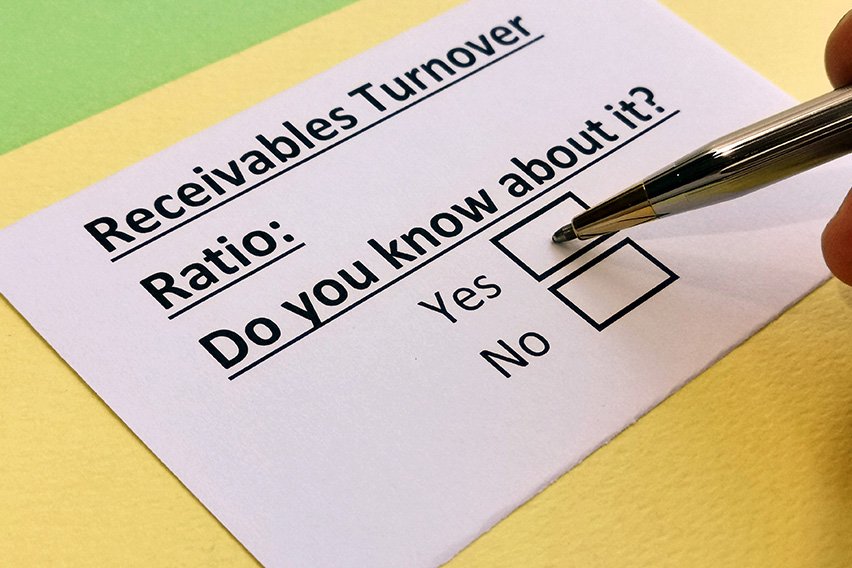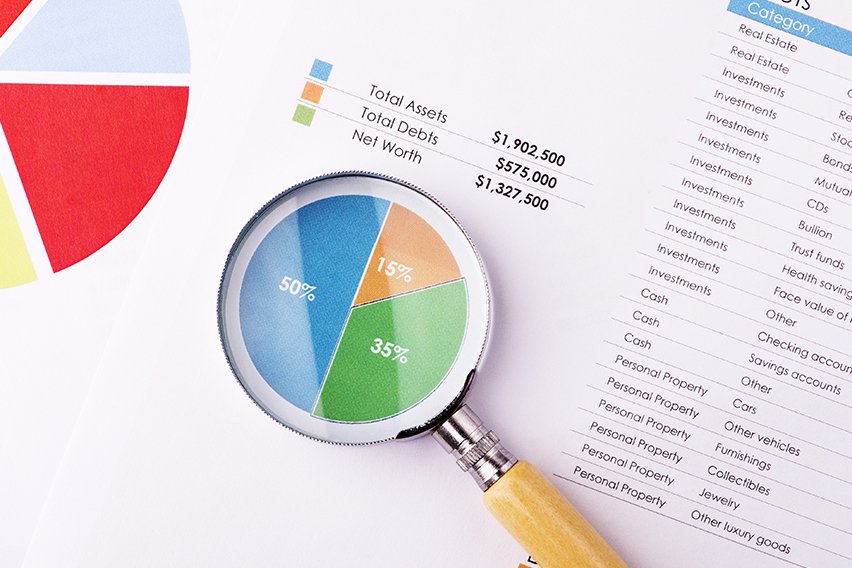Small Business Accounting 101: A 10-Step Guide for Financial Success

Understanding the basics of small business accounting helps small business owners get a clear picture of their company’s finances, track their cash flow and organize their books for tax season. This Small Business Accounting 101 guide answers important accounting questions to help you tackle the financial operations of your business.
Master small business accounting 101 by following this 10-step guide:
- How Do I Register My Business?
- Do I Need a Business Bank Account?
- Should I Separate My Personal and Business Finances?
- What Accounting Method Should I Use?
- How to Develop a Bookkeeping System
- How Do I Track My Business Expenses?
- How Can My Business Receive Payments?
- How Do I Set up Payroll?
- What Are My Tax Obligations as a Small Business?
- Should I Hire a Small Business Accountant?
NOTE: FreshBooks Support team members are not certified income tax or accounting professionals and cannot provide advice in these areas, outside of supporting questions about FreshBooks. If you need income tax advice please contact an accountant in your area.

1. How Do I Register My Business?
To register your business, you’ll first need to decide what type of business you’re going to run. Here are some of the ways you can register your small business:
Sole Proprietorship
A sole proprietorship is an unincorporated business that only has one owner. This is a popular business type among freelancers and entrepreneurs because it’s easy and affordable to register as a sole proprietor. You’ll want to make sure you have all the necessary permits and licences that your state requires.
Here’s a helpful guide to help you figure out what you need to do in your area. In a sole proprietorship, there is no legal separation between you and your business, so you can be held personally liable for any debts your company may owe.
Limited Liability Company (LLC)
An LLC is a flexible business structure that includes elements of a sole proprietorship, a partnership and a corporation. With an LLC, you’re personally protected in the case of debts or lawsuits against your company, which might make it a more attractive option than a sole proprietorship.
LLCs give you flexibility when filing taxes: you can run a single-person LLC and file taxes as a sole proprietor or as a corporation. Or, you can run an LLC with multiple small business owners, and file taxes as a partnership or as a corporation.
Corporation
A corporation is a company or group of people legally allowed to act as a single entity. For tax purposes, a corporation is considered a separate taxpayer. Some of the benefits of forming a corporation include lower corporate tax rates, added legal protections, and the ability to attract outside investors. Because corporations are expensive and complex, many small business owners shy away from this option.
Partnership
A partnership enables two or more people to share ownership of a business. Each small business owner needs to contribute to the business with labor, skills, money, or property.
Businesses structured as partnerships are relatively simple and cheap to register. If you plan to set your business up as a partnership, it’s a smart idea to have a partnership agreement in place, to outline responsibilities, partner payment and dispute resolution.
2. Do I Need a Business Bank Account?
You’ll want to open a business bank account once you’ve registered your business. LLCs, corporations and partnerships are required by law to open a business account. It’s not a requirement for a sole proprietorship, but it’s still highly recommended.
When choosing a bank for your small business, consider some important factors:
- What types of accounts do you need to open?
- What fees does the bank charge for small business accounts?
- Will you be banking primarily online or at a branch?
- Does the bank have branches and ATMs close to you?
Here are the business bank accounts you’ll likely want to open:
Business Checking Account
Use it to receive income from your clients and pay your business expenses.
Business Savings Account
Use it to save a percentage of your income to cover your tax payments as a self-employed worker, to ease the pain of tax season. It’s also a good idea to save extra money in case of emergency business expenses.
Business Credit Card
Not exactly a bank account, but use it to build good credit for your business (just be sure to pay your balance in full each month). If you choose the right business credit card, you can also earn points and cash back for your business.
3. Should I Separate My Personal and Business Finances?
It’s crucial that you keep your personal and business finances separate once you open your business bank accounts.
What does separate business accounts mean?
- Don’t pay for business expenses from your personal bank account don’t pay personal expenses from your business bank account.
- Don’t transfer cash from your business account to your personal account if you’re an LLC or corporation.
At a minimum, you need a business checking account. But you might also want to open a savings account. Having a separate bank account for saving for tax payments or other long-term business goals makes it easy to see how much cash you have available to spend.
Separating your small business accounting will make life easier at tax time, because you’ll have all your business expenses together in one place and you won’t have to sift through your personal banking statements to track down business expenses.
4. What Accounting Method Should I Use?
Small businesses can decide to use one of two accounting methods: cash accounting or accrual accounting. Before you file taxes you’ll need to select an accounting method and stick with it for future tax returns and financial statements.
Here’s how the two small business accounting methods work.
Cash accounting method
Cash accounting recognizes and records revenue when money is received and recognizes expenses when they’re paid. It’s commonly used by freelancers and entrepreneurs because it’s the more simple of the two accounting methods.
Accrual accounting method
Accrual accounting reports revenue when it’s earned and expenses when they’re incurred, not when the money is actually received or paid. It gives a more accurate idea of your income and expenses for a specific time period but doesn’t show your company’s true cash flow.
Generally accepted accounting principles require larger companies to use accrual accounting, but most small business owners use the cash accounting method because it’s easier.
5. How to Develop a Bookkeeping System
Bookkeeping simply involves tracking all your financial transactions, including the revenue you earn and the expenses you incur. But to do it well, you’ll need to develop a bookkeeping system that works for you. Developing a bookkeeping system allows small businesses to generate accurate financial statements.
There are three main bookkeeping systems your business can opt for:
- DIY Bookkeeping: If you’re a freelancer or if your business is quite small, going the DIY route might be best for your bookkeeping. You can either use an Excel sheet to track all your business transactions, or you can pay a nominal fee for the simplicity of cloud-based bookkeeping software.
- Outsource Bookkeeping: Outsource Bookkeeping: If you prefer not to handle your own bookkeeping, you can pay to outsource the work. You can either opt to hire a part-time bookkeeper as a contractor, work with an accounting firm, or you can choose an online bookkeeping service to do the work for you.
- Hire an In-House Accountant: This option probably won’t apply to most freelancers, but if your business grows to the point that your bookkeeping workload is considerable, you can hire a bookkeeper handle accounting tasks. It probably goes without saying that this is the priciest option.
6. How Do I Track My Business Expenses?
Small businesses are required to track and file away documentation related to small business expenses, income and tax returns. The IRS offers a detailed list of the different records you should store for your business, but some of the basics you’ll want to keep are:
- Business receipts (for office supplies, business meals, work travel, etc.)
- Bank statements and credit card statements
- Bills (for your work phone, office utilities, etc.)
- Invoices
- Financial statements
- Proof of payments
- Tax returns
Complicating the recordkeeping process for small businesses is the fact that you’re required to keep each type of document for a different length of time. The amount of time you need to store your records usually varies from three to ten years. Employment tax records, for example, need to be kept for four years.
You can choose to physically store your documents using a filing system that works for your business, or you can use a cloud-based recordkeeping system to streamline your filing and save on physical storage space.
7. How Can My Business Receive Payments?
You’re in business to make money (among other things), so it’s important to figure out a system for how your clients will pay you for your work. Freelancers may wish to stick to more basic payment options, like checks and direct deposits, whereas more complex businesses with multiple service offerings may want to offer clients a wider range of payment options.
Here are some payment options to consider for your business:
Online Payments
Receiving online payments helps get your accounts receivable paid faster, which is always a good thing for entrepreneurs. Online payment services like Stripe can process your company’s online credit and debit payments for a fee. If you use cloud-based accounting software to manage your finances, it might already integrate with an existing online payment platform.
Mobile Payments
Small businesses like landscapers and construction companies may want to offer clients the option to pay in-person, directly from the job site. Mobile card readers like those offered by Square let you accept payments anywhere, by credit and debit card. Fees for a merchant account can be high, so make sure it makes sense for your business.
Automated Invoices
To simplify your invoicing process, you might want to set up an automated invoicing system. Some cloud-based accounting software offers this service. That way, if you have recurring invoices for certain clients, you can let your small business accounting software do the heavy lifting for you, generating invoices automatically.
Also Read: How to Invoice as a Sole Trader
8. How Do I Set up a Payroll System?
Setting up a payroll system is an important step for small businesses that employ staff or contractors. You might not need a payroll system when you’re first starting out as a freelancer or solopreneur, but as your business grows, you may hire freelancers and contractors to help with your workload or to offer additional services to your clients.
When setting up payroll, you first have to classify workers correctly. It’s important for tax reasons, to avoid trouble with the IRS. So, is a worker an employee or a contractor? Here’s how to distinguish between the two:
Employees
An employee is a worker over whom your business has some financial and behavioral control. That may sound harsh, but what it really means is that an employee is someone who is trained by your company, has set working hours and the work they perform is crucial to the functioning of your company.
Independent contractors
A contractor has independence in how and when they work. They’re usually paid hourly or by project, set their own work hours and typically their work isn’t central to the functioning of the business.
Once you’ve classified your workers, you’ll need to research employment laws and employment tax, to make sure you’re meeting all your legal and financial responsibilities. A payroll system that integrates with your accounting system makes issuing paychecks and handling payroll taxes much easier.

9. What Are My Tax Obligations as a Small Business?
The tax obligations of small businesses are much more complicated than personal income taxes and businesses pay different taxes across all three levels of government: federal, state and local.
There are other factors that impact your business’s tax obligations, including the services you offer clients and the legal structure of your company.
There are some common taxes that small businesses need to be aware of:
Income Tax
If your business is a sole proprietorship, you can file personal income taxes for your business income. If you’re registered as a corporation, your company itself may be taxed on its income.
Self-Employment Tax
As a small business owner, you’re self-employed, and you’ll need to pay self-employment taxes to cover Social Security and Medicare benefits obligations.
Employment Tax
If your business hires employees, you’ll need to pay employment tax through the Federal Insurance Contributions Act (FICA), which includes Social Security and Medicare contributions.
Sales Tax
Sales tax is governed at the state level, so your obligations will vary based on where your business is located. Before you begin collecting sales tax, you need to register for a sales tax permit. Sales tax rates and due dates vary by state, so be sure to research your local obligations.
10. Should I Hire a Small Business Accountant?
Hiring a small business accountant can be a smart move if you don’t have the time to handle all your small business accounting on your own. You don’t need to hire an accountant to oversee all aspects of your finances, but it could be a good idea to consult with one on specific aspects of your business, for instance, selecting accounting software, filing your tax returns or determining the best legal structure for your business.
A professional small-business accountant can help you with the following professional accounting services:
- Develop a financial strategy
- Conduct financial reporting, including preparing a year-end balance sheet, income statement, and cash flow statement
- Oversee tax planning and filing
- Ensure tax compliance
- Negotiate leases and other business transactions
- Handling accounts payable
Here are some questions you might want to ask a Certified Public Accountant (CPA):
- What’s the best legal structure for my small business?
- How does the legal structure of my business impact my taxes?
- What types of business insurance do I need?
- Do I need to collect sales tax?
- How can I reduce my yearly tax bill?
- What business records do I need to file, and how long do I need to keep them?
- What small business accounting software is right for me?
- How can I improve the financial health of my business?
About the author
Janet Berry-Johnson, CPA, is a freelance writer with over a decade of experience working on both the tax and audit sides of an accounting firm. She’s passionate about helping people make sense of complicated tax and accounting topics. Her work has appeared in Business Insider, Forbes, and The New York Times, and on LendingTree, Credit Karma, and Discover, among others. You can learn more about her work at jberryjohnson.com.
RELATED ARTICLES


 How to Increase Profit Margins: Top 5 Ways to Increase Your Small Business’s Revenue
How to Increase Profit Margins: Top 5 Ways to Increase Your Small Business’s Revenue How To Calculate Liabilities: A Step-by-Step Guide with Formulas
How To Calculate Liabilities: A Step-by-Step Guide with Formulas What Is an Income Statement?
What Is an Income Statement? How to Calculate Accounts Receivable Turnover
How to Calculate Accounts Receivable Turnover What Are Fixed Assets? A Simple Primer for Small Businesses
What Are Fixed Assets? A Simple Primer for Small Businesses Is Service Revenue an Asset? Breaking down the Income Statement
Is Service Revenue an Asset? Breaking down the Income Statement